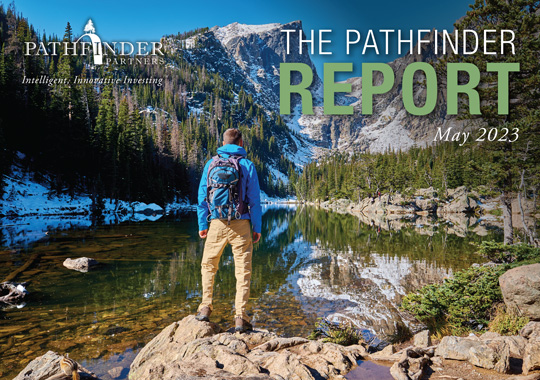Zeitgeist - News Highlights
The Golden Handcuffs of Homeownership
The days of 3% fixed-rate mortgages are in the past. Mortgage rates peaked above 7% in November 2022 and have since settled above 6%. This sharp uptick in borrowing costs has made it difficult for homeowners to upsize and replace their existing homes. Higher mortgage rates have also eroded the value in downsizing since the new monthly payment for a smaller (and less expensive) home is often higher than a homebuyer’s existing mortgage. This phenomenon is even more pronounced in places like California where annual property tax increases are capped for an existing owner and reassessed at market value for a new buyer. And many Americans who recently bought a new home are becoming first time landlords – rather than sell their old home, they are renting it out and benefitting from the strong rental market and their previous home’s once-in-a-lifetime low mortgage rate.
According to Redfin, year-over-year home sales fell 22% in February. New listings also fell 22% with the biggest declines in Sacramento (-46%), Oakland (-45%), Portland (-42%), San Jose (-42%) and Seattle (-41%). The combination of higher interest rates, limited for-sale housing supply and record price appreciation during the pandemic have made homeownership out of reach for an increasing number of Americans.
As a result, the cost of homeownership has made renting a relative bargain. According to a recent report from John Burns Real Estate Consulting, the average monthly differential between owning and renting is $2,689 in Seattle, $2,386 in San Diego, $1,491 in Denver, $1,402 in Portland, $1,388 in Sacramento and $910 in Phoenix. As a result, demand for apartments – especially Class-B work force housing – should continue to stay strong.
The Apartment Industry Meets Artificial Intelligence
 Artificial Intelligence or “AI” is a household term with potential applications across a staggering number of industries. In the apartment business, AI is now being used to assist in leasing efforts, rent collections, security monitoring and energy usage, with new applications seemingly coming to market every month.
Artificial Intelligence or “AI” is a household term with potential applications across a staggering number of industries. In the apartment business, AI is now being used to assist in leasing efforts, rent collections, security monitoring and energy usage, with new applications seemingly coming to market every month.
A 2018 report by Zillow found that renters expect a response to online leasing inquiries within 24 hours. A reply within two minutes results in a 40% engagement success rate while waiting 30 minutes drops the rate to 10%. In response, many landlords are utilizing AI leasing agents who can work around the clock and respond to leasing inquiries immediately with increasingly natural language. AI “rent collectors” can generate customized text and email messages to late-paying tenants, reducing the collections burden for resident managers and allowing them to focus on leasing activities and resident service requests.
In addition, apartment properties can now utilize security cameras that are continuously monitored by AI software and alert a remote security agent to any criminal activity allowing them to immediately notify authorities or intervene via a remote speaker system. AI software is also being used to enhance a property’s energy efficiency, helping reduce utility expenses for both tenants and landlords, while enhancing a property’s overall sustainability.
The apartment industry is constantly adapting and artificial intelligence is the next wave of evolution. The technology is currently being used to create a safer, more efficient and more sustainable experience for both tenants and landlords and we hope it will continue to be utilized in a responsible fashion.
Share this Article
IN THIS ISSUE
PATHFINDER PARTNERS INCOME FUND, L.P.
A Stablized Multifamily Fund
CHARTING THE COURSE
Strong Tailwinds Should Propel Multifamily
FINDING YOUR PATH
Rocky Mountain High
GUEST FEATURE
When You Evaluate Investment Returns, also Consider Risk
ZEITGEIST
News Highlights
TRAILBLAZING
Passage, Vancouver (Portland Metro), WA
NOTABLES AND QUOTABLES
Staying the Course
